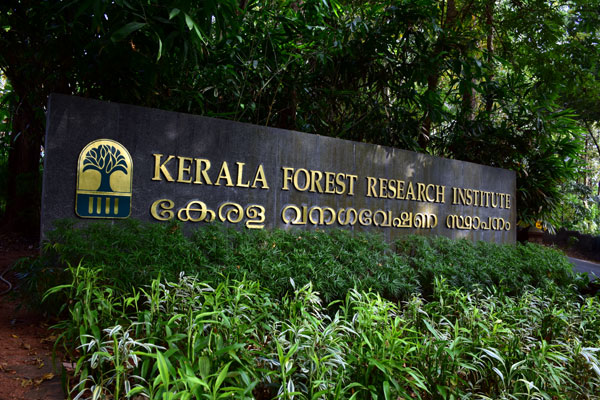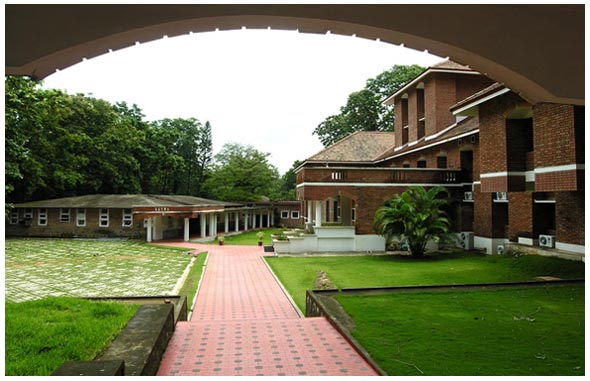

The Kerala Forest Research Institute (KFRI) is a multidisciplinary centre of excellence dedicated to research in tropical forests and forestry. Established in 1975, KFRI has now entered its 50th year of service. This remarkable jubilee milestone marks five decades of pioneering contributions to tropical forestry and biodiversity conservation. As we celebrate this golden jubilee, KFRI reaffirms its vision to be a Centre of Excellence in Tropical Forestry, offering scientific support for informed decision-making in conservation, sustainable utilisation, and the scientific management of natural resources.
KFRI became a constituent institution of the Kerala State Council for Science, Technology and Environment (KSCSTE) in 2002 and is now one among the seven other R&D centres of the State.
Our team comprises highly qualified scientific, technical, and administrative professionals. The institute is structured into 17 Research Departments grouped under nine Programme Divisions, ensuring interdisciplinary convergence to advance KFRI's mission.

KFRI undertakes diverse research and consultancy programmes for national and international agencies on topics related to biological conservation and sustainable natural resource management. It is accredited as a research centre by FRI University Dehradun, University of Calicut, and Cochin University of Science and Technology for PhD programmes.
The institute boasts state-of-the-art research infrastructure, including advanced laboratories for Tissue Culture, Clonal Multiplication, Physiology, Wildlife Biology, Soil Science, Biotechnology, Wood Sciences, Biochemistry, Mycology, Entomology, Silviculture, GIS, and Remote Sensing. Our plant propagation facilities include a Forest Seed Centre (KFSC), nurseries, and greenhouses, along with long-term ecological monitoring systems such as Permanent Plots and Weather Stations. KFRI also serves as the Secretariat for international networks like TEAKNET, funded by the Food and Agriculture Organisation (FAO) of the United Nations.
Over the past five decades, our field research across India's remote forest regions has led to an impressive collection of plant, animal, and soil specimens. These are preserved and displayed in our Arboretum, Bambusetum, Cane and Palmetum, Herbarium, Medicinal Plants Garden, Orchidarium, Soil Museum, Xylarium, Wildlife Museum, and the iconic Teak Museum. The Guided Nature Trails and Thematic Environmental Displays managed by our Extension and Training Division offer a unique educational experience.
KFRI scientists actively participate in policy-making through government committees, management plan teams, and conservation strategies for protected areas and forest divisions. The institute plays a pivotal role in shaping policies around Participatory Forest Management (PFM) and sustainable Non-Timber Forest Products (NTFPs) extraction. This deep engagement positions KFRI as a think tank in forest and natural resource policy.
As we commemorate our 50th year, KFRI remains committed to its founding mission, continuing to innovate, educate, and lead the way in sustainable tropical forestry.